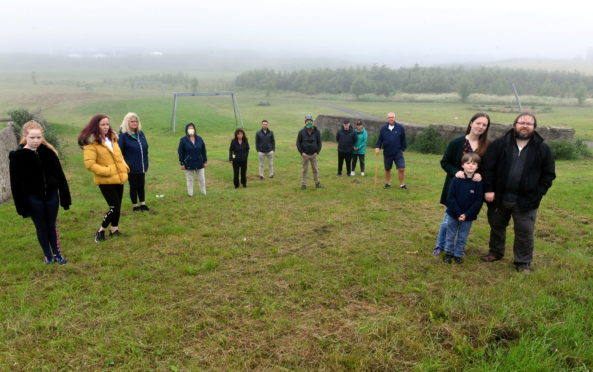Aberdeen City Council has been told to take plans for a multi-million-pound industrial park “somewhere else” by campaigners keen to save their community’s last green space.
Hundreds of Torry residents have sprung into action to save St Fittick’s Park, which could soon be earmarked for an energy transition zone (ETZ).
The economic hopes of the city are pinned to the development, which will help move the north-east economy past its reliance on oil and gas.
In March the council backed the proposed local development plan, which designated both St Fittick’s Park and Doonie’s Rare Breeds Farm as sites for the ETZ.
A consultation on the proposed plan opened on May 20 and will continue until the end of August.
But many residents claim they have only learned about the plans in the last few days, as they received letters asking for their views.
Community organisers are encouraging residents looking to save the park to take part in the online consultation, as well as adding their name to a petition which has gained more than 700 signatures in days.
Torry resident and environmental scientist David Knight said: “I am very much in favour of a move away from oil and gas towards green energy.
“But an ETZ cannot come at the expense of our community’s last bit of accessible green space, which I fear the council want to use to make it easy for themselves.
“The park has been a lifeline for many during lockdown as it’s the only place we can go – we can’t lose it.”
Renee Slater, who started the petition, said: “Torry has been badly affected by industrialisation over the years and it’s about time the council went somewhere else.
“St Fittick’s Park includes wetlands, woodland and is a green space accessed by residents on a daily basis.
“It is needed in Torry, it is not right to erode our green space any further.”
The Scottish Government last week announced funding for the project, adjacent to the new Aberdeen Harbour expansion.
First Minister Nicola Sturgeon unveiled £62million for an ETZ, a global underwater hub in the city, carbon capture and hydrogen technology and a range of net zero projects led by oil and gas firms.
Industry leaders such as Sir Ian Wood pushed for the investment with the hope of securing decades of employment in the north-east.
